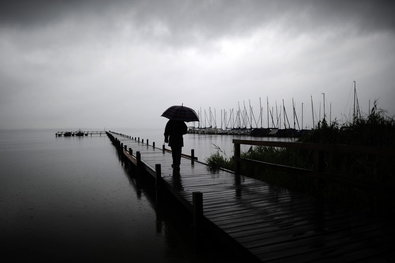
Has Being Single in America Changed?
At one point, single people were considered outliers in society. But though the Supreme Court made marriage a right for every person, regardless of sexual orientation, a significant rise in singles in the United States shows that many people feel less inclined to marry, or stay married. Certainly, some say, the institution of marriage no longer “embodies the highest ideals of love, fidelity, devotion, sacrifice and family” — though that language sealed the court’s ruling. Has being single in America changed?
* outlier = 집 밖에서 자는 사람[동물]; 분리물/ regardless of ~ = ~에 상관없이[구애받지 않고]/ sexual orientation = 성적 지향/ feel inclined to ~ = ~하고 싶다[내키다]/ embody = 상징[구현]하다; 포함하다/ fidelity = (배우자에 대한) 신의[정절]; 충실함/ seal = 확정짓다, 다짐하다
 독신의 삶이 미국에서 변했나요?
독신의 삶이 미국에서 변했나요?
1. The Appeal of Alone Time for the Over 50 Crowd
After decades of caretaking and housekeeping, often while working full time, many older divorced and widowed women are thankful to finally have “me” time.
2. Marriage Remains the Gold Standard
Even today, when marriage is less likely to guide our lives, relationships and families, it’s still the case that it is without peer when it comes to calling forth the best in our relational lives.
3. For the College-Educated, There Is a Man Deficit
I foresee a rise in what I call “mixed-collar marriages" — professional women marrying working-class men.
4. A Rise in the Number of Those Living Alone
Over a quarter of households consist of one person — up from 13 percent in 1960.
5. As Marriage Expands So Does Singlehood
The idea that marriage is the only way to have someone present for you is absurd and devalues the relationships single people create in their lives.
Sample Essay
As Marriage Expands So Does Singlehood
In all the talk about marriage and the dignity it provides couples, little attention has been given to the way our current matrimania has changed being single. Every time marriage expands, what it means to be single or a family expands as well.
In the days of "Bachelor Father" and "The Mary Tyler Moore Show," the single person’s fear may have been that his or her only fate was loneliness, as Justice Anthony Kennedy’s opinion suggests. But accepting that view ignores the way individuals continue to innovate what it means to be a family. The bigger battle is not just about the important legal recognition of same-sex unions, but the recognition that kinship and fidelity are not bound up solely in the bonds of marriage.
I love weddings. I love the ritual, the coming together of chosen and biological families, and the cake. The weekend before Justice Kennedy gave the majority opinion in the Obergefell v. Hodges case, I watched my 5-year-old bear the rings for the wedding of his beloved godmama to her new wife. Yet in my exceeding happiness for them, I recognize that the ultimate battle is to remove any requirements of marriage or coupledom from any of the important benefits they are attached to, and to allow people to design the kinds of intimate networks they choose.
Why can’t I designate a person of my choosing in the absence of a spouse to receive health benefits earned through my labor if they “embody … family and sacrifice” for me? A person should be able to choose anyone they love without the mythology of being “in love” that permeates the way these important benefits are designated now.
The legal tools used to bond the family we make beyond marriage are weak and easily subject to challenge. The idea that marriage is the only way to have someone present for you is absurd and devalues the relationships single people create in their lives.





![]() 독신의 삶이 미국에서 변했나요?
독신의 삶이 미국에서 변했나요?






